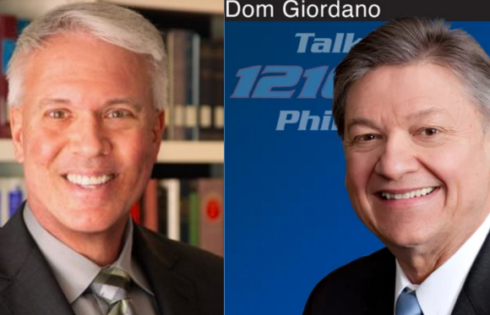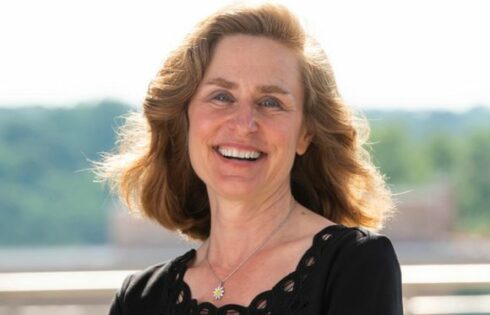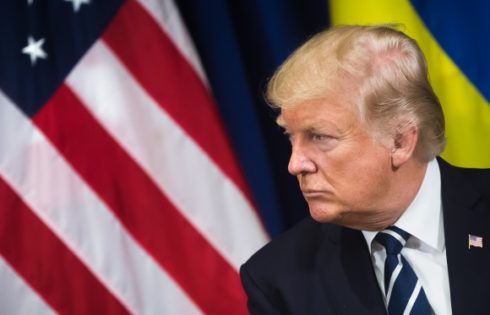The opening rounds of the battle between Virginia Attorney General Ken Cuccinelli and the University of Virginia are almost over.
Judge Paul Peatross of the Albemarle County Circuit Court is expected to rule any day now on Cuccinelli’s investigation of climate scientist Michael Mann, a former UVA professor who is accused of altering his data to secure funding for his research.
Is the attorney general’s probe a worthy investigation into academic research fraud or a witch hunt for political gain?
Cuccinelli, a global warming skeptic, claims Mann potentially mishandled five public grants totaling $466,000 and has demanded documentation and correspondence from UVA, where Mann worked from 1999-2005.
Mann, who is now on the faculty of Pennsylvania State University, was one of the researchers involved in last year’s ‘Climategate’ scandal, in which climate scientists were accused of manipulating their data.
“The question is whether he obtained grant money under the auspices of cooked-up research. If he did, he’ll have some explaining to do,” said Myron Ebell of the Comparative Enterprise Institute. Ebell is a global warming skeptic.
In December, Robert Marshall, a Republican delegate in Virginia’s state legislature, requested Mann’s correspondence under the Freedom of Information Act, only to be told that the information had been deleted when Mann left the school. That response prompted Cuccinelli’s investigation, which seeks documentation going back more than a decade, including academic research and emails that mention 39 other climate scientists.
Cuccinelli’s office maintains this is about the law, not science. “This is a fraud investigation and the attorney general’s office is not investigating Dr. Mann’s scientific conclusions,” says a statement.
After initially expressing an intent to cooperate with Cuccinelli, UVA reversed course and filed a challenge. It said the inquest violates a “bedrock principle” of academic freedom and that its “sweeping scope is certain to send a chill through the Commonwealth’s colleges and universities.”
On August 17, four groups filed amicus briefs in opposition to Cuccinelli’s inquiry. The American Association of University Professors, American Civil Liberties Union of Virginia, Thomas Jefferson Center for Free Expression, and the Union of Concerned Scientists asked the judge to set aside Cuccinelli’s request.
“If the court permits the attorney general to gain access to the private communications among scientists whenever he disagrees with their ideas, the scientists will simply stop sharing their ideas,” said Kent Willis, Executive Director of the ACLU of Virginia to the Washington Post. Some, like Al Gore and climate change skeptic Thomas Fuller have suggested the investigation is a “witch hunt.”
August 20, UVA students gathered beneath Thomas Jefferson’s storied rotunda to protest the Attorney General’s action. Only five students attended, though, with the protest taking place the day before most UVA students moved in. One student described the scene as “awkward.”
As to whether the inquest violates academic freedom, Ebell is agnostic. The controversy has “revealed some problems with scientists trying to conceal their methodologies and data,” he said
Mann’s role in the Climategate scandal involved his reference to the use of a statistical “trick” that critics claim distorted his climate data. A Penn State ethics panels cleared Mann of any wrongdoing, but skeptics continue to harbor doubts.
A press release from Cuccinelli’s office suggests that he seeks a similar smoking gun: “The revelations of Climate-gate indicate that some climate data may have been deliberately manipulated to arrive at pre-set conclusions. The use of manipulated data to apply for taxpayer-funded research grants in Virginia is potentially fraud.”
He has also argued that the information is not shielded from review by notions of academic freedom or First Amendment principles.
This isn’t the first time the attorney general has clashed with state universities. Earlier this year, Cuccinelli advised dropping protections for gays and lesbians in nondiscrimination policies. He has also sued the federal government over the new federal healthcare law and issued an opinion on Arizona’s controversial immigration law.
Jordan Bloom is the managing editor of the Virginia Informer. He is a senior at the College of William & Mary.
Like The College Fix on Facebook / Follow us on Twitter





Please join the conversation about our stories on Facebook, Twitter, Instagram, Reddit, MeWe, Rumble, Gab, Minds and Gettr.